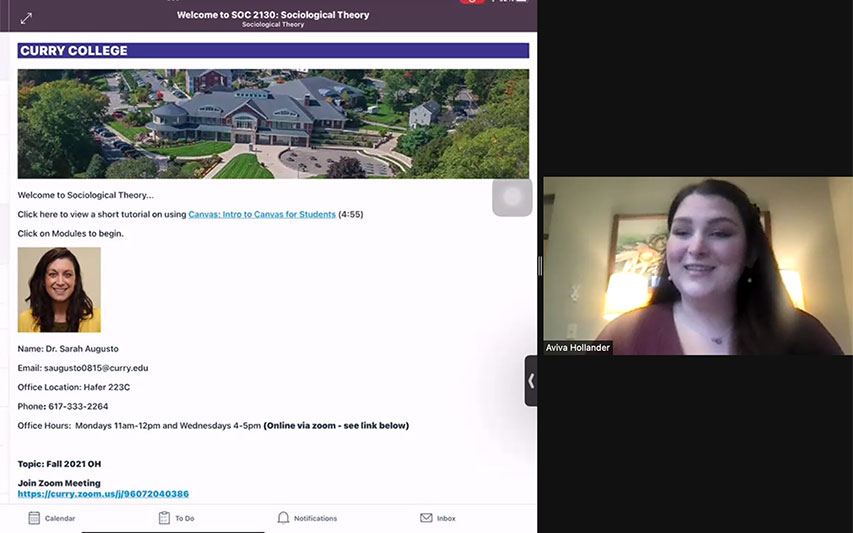
TOPICS:
“Metacognition is learning about your learning and what type of learner you are,” said Matt Mariani, a senior software development major, during a webinar where he presented with fellow student Aviva Hollander, a senior sociology major, and Dr. Laura Vanderberg, director and professor in Curry’s Program for Advancement of Learning (PAL).
The three gave an invited presentation to the NorthEast Regional Computing Program, a non-profit consortium serving higher education library and IT professionals. To an audience of higher education professors and administrative leaders with an interest in promoting educational success through accessible technology, they highlighted Curry’s iPAL curriculum, implementation, and evaluation; the role of student development with a metacognitive model; and the importance of accessibility to transform student educational experiences.
“In our program, a fundamental is the idea that all of the brains of our students come with some similarities and some differences,” said Vanderberg. “When we put them all together, something magical happens. This is the power of shared cognition and shared experiences. We also make sure we honor the differences between our students.”
Both Mariani and Hollander work as a peer mobile learning tutors in the Assistive Technology Center. On the webinar, the two students modeled a situation of how they would work with a student seeking help with note taking. Mariani showed how a tutor would use the “iPAL app wheel” they developed to help a student figure out which apps might help them (all PAL students are issued iPads their freshman year). In this case, Hollander showed how using the Notability app has helped her in her classes, highlighting components of accessible course design by Dr. Sarah Augusto of the Sociology and Criminal Justice Department.
The students were part of a team that developed the iPal app wheel and when Mariani was asked how it felt to work on it, he said, “It’s empowering. There is a sense of accomplishment, and it feels rewarding to put my name on this and say I did something that helped other people, something that students use, and even some faculty have used.”
Vanderberg stressed how the PAL program emphasizes students helping other students and finding tech solutions to learning issues together. Aviva said, “You don’t know someone has a problem with accessibility until they experience it. By coming together, we can problem solve and come up with solutions together and quicker.”